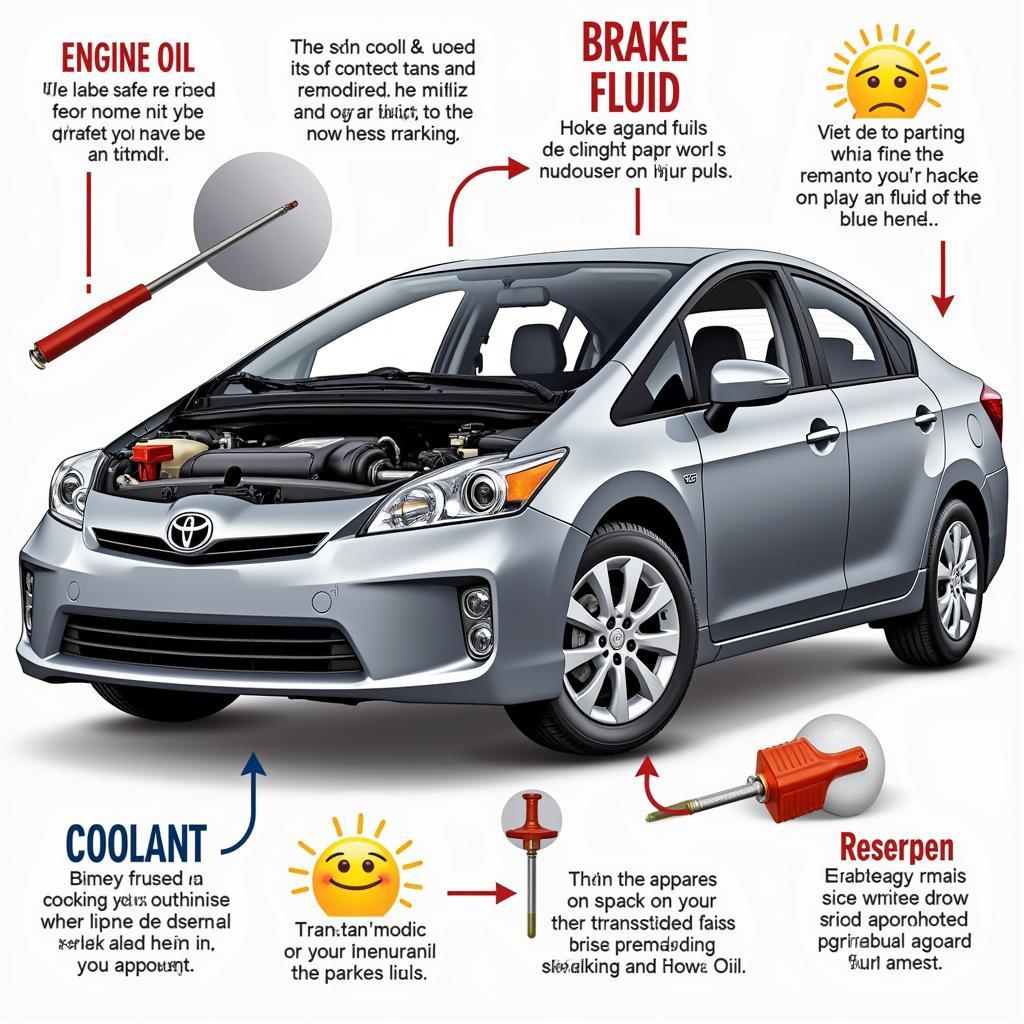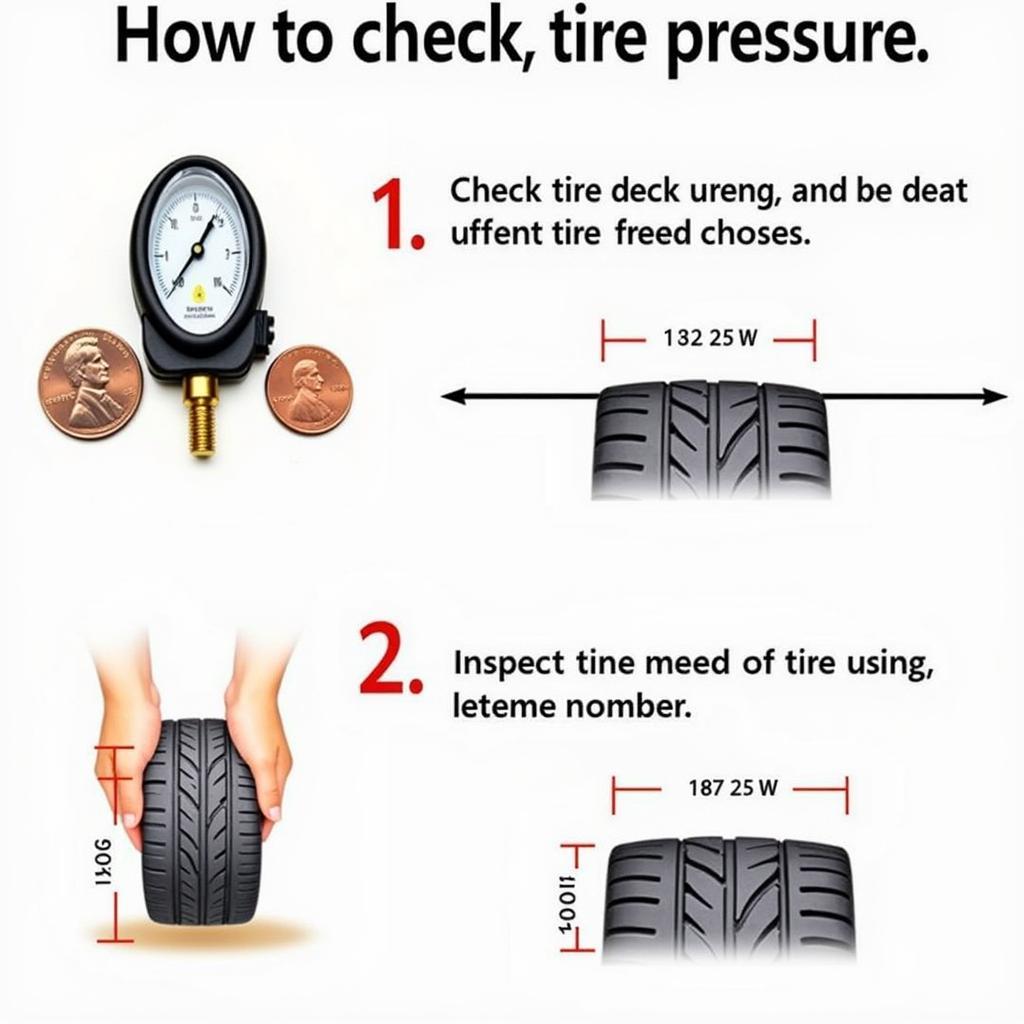Owning a car for the first time is exciting! But along with the freedom and convenience comes the responsibility of proper maintenance. Understanding the “first time car owner’s maintenance musts” will not only keep your car running smoothly but also save you money and potential headaches down the road. This guide will cover essential maintenance tasks every new car owner should know.
Regular maintenance is key to a vehicle’s longevity and performance. Neglecting these essential tasks can lead to costly repairs and decreased safety. Let’s explore the vital maintenance musts for new car owners. For detailed information about new car maintenance in general, check out our guide on auto new car maintenance.
Essential Fluid Checks and Changes
Fluid checks are the cornerstone of basic car maintenance. Regularly checking and changing your car’s fluids is crucial for its overall health.
Engine Oil
Engine oil lubricates the engine’s moving parts, reducing friction and preventing wear and tear. Check your oil level monthly and change it according to your car’s manual. Ignoring this can lead to engine damage.
Coolant
Coolant keeps your engine from overheating. Check the coolant level regularly and have it flushed and replaced as recommended by the manufacturer.
Brake Fluid
Brake fluid is essential for safe braking. Low brake fluid can indicate a leak and compromise your safety. Have your brake fluid checked and changed regularly, especially if you notice any changes in brake performance.
Transmission Fluid
Transmission fluid keeps your car’s gears shifting smoothly. Check the fluid level and have it changed as recommended in your owner’s manual.
 Essential Car Fluid Check for First-Time Owners
Essential Car Fluid Check for First-Time Owners
Tire Care and Maintenance
Your tires are your connection to the road. Proper tire maintenance is vital for safety and fuel efficiency.
Tire Pressure
Check your tire pressure monthly and before long trips. Proper inflation ensures optimal handling, fuel economy, and tire lifespan. You can find the recommended tire pressure for your car in the owner’s manual or on a sticker inside the driver’s side doorjamb.
Tire Rotation
Rotating your tires regularly helps them wear evenly, extending their lifespan. Most manufacturers recommend rotating tires every 5,000 to 8,000 miles.
Tread Depth
Check your tire tread depth regularly. Worn tires can reduce traction and increase the risk of hydroplaning.
 Tire Maintenance Basics for New Car Owners
Tire Maintenance Basics for New Car Owners
Regular Inspections: Lights, Brakes, and Filters
Routine inspections of key components can prevent minor issues from turning into major problems.
Lights
Check your headlights, taillights, brake lights, and turn signals regularly. Make sure they are all working correctly to ensure visibility and safety.
Brakes
Have your brakes inspected at least once a year. Look for signs of wear and tear, such as squeaking or grinding noises.
Air Filter
The air filter prevents dirt and debris from entering your engine. A clogged air filter can reduce fuel efficiency and engine performance. Replace your air filter as recommended in your owner’s manual.
Cabin Air Filter
The cabin air filter cleans the air that comes into your car’s cabin. Replace it regularly to ensure clean and healthy air inside your vehicle.
John Smith, a seasoned automotive technician at a reputable repair shop, advises, “Regular filter changes are often overlooked, but they are crucial for maintaining optimal engine performance and air quality inside your vehicle.”
Battery Maintenance
Your car’s battery provides the power to start the engine and run electrical components.
Battery Terminals
Check your battery terminals for corrosion. Clean them with a wire brush and a mixture of baking soda and water if necessary.
Battery Life
Car batteries typically last 3-5 years. Have your battery tested regularly to ensure it’s in good condition.
Keeping Records and Following the Maintenance Schedule
Maintaining detailed records of your car’s maintenance history is essential. This will help you track what’s been done and when, making it easier to stay on top of future maintenance tasks. Your car’s owner’s manual provides a recommended maintenance schedule. Following this schedule is the best way to keep your car in good condition and avoid unexpected repairs. Emily Carter, a certified mechanic with over 20 years of experience, emphasizes, “Sticking to the manufacturer’s recommended maintenance schedule is the single most effective way to prevent major car problems and prolong the life of your vehicle.”
In conclusion, following these first time car owner’s maintenance musts will keep your car running smoothly, safely, and efficiently for years to come. Don’t hesitate to reach out to us at AutoTipPro for personalized advice and support. You can reach us at +1 (641) 206-8880 or visit our office at 500 N St Mary’s St, San Antonio, TX 78205, United States. Remember, proactive maintenance is always better than reactive repairs.






Leave a Reply